Working together, with facilitation support from Vision Driven Consulting and Culture Work Studios, our board and staff reflected on current opportunities and challenges to develop a new three-year strategic plan rooted in diversity, equity, inclusion, and justice which was finalized in late 2022. We set tangible goals to guide our work, focused on the following areas of work: Impact, Programs & Partnerships; Staffing & Governance; Marketing & Communications; and Fundraising. We share these goals and the context in which they were created in the spirit of openness and transparency, so that our partners, volunteers, and wider community will hold us accountable and support us in our growth. We also recognize that we must continually adapt to the changing environment and the various opportunities or challenges that may arise, and pledge to remain responsive to the needs of our partners and our community.
We have come to recognize that the core work of POP is education and knowledge-sharing around food and the environment, and orchards can serve as vital green spaces for residents to connect with nature and to build community. POP gives communities direct experience handling perennial food-producing plants, often through an orchard work day, workshop or harvest event. POP aims to inspire and empower community members with the resources, knowledge, and connections to continue the work in their own neighborhoods. Orchards become transformational spaces where community members enjoy a sense of “I can do this too.”
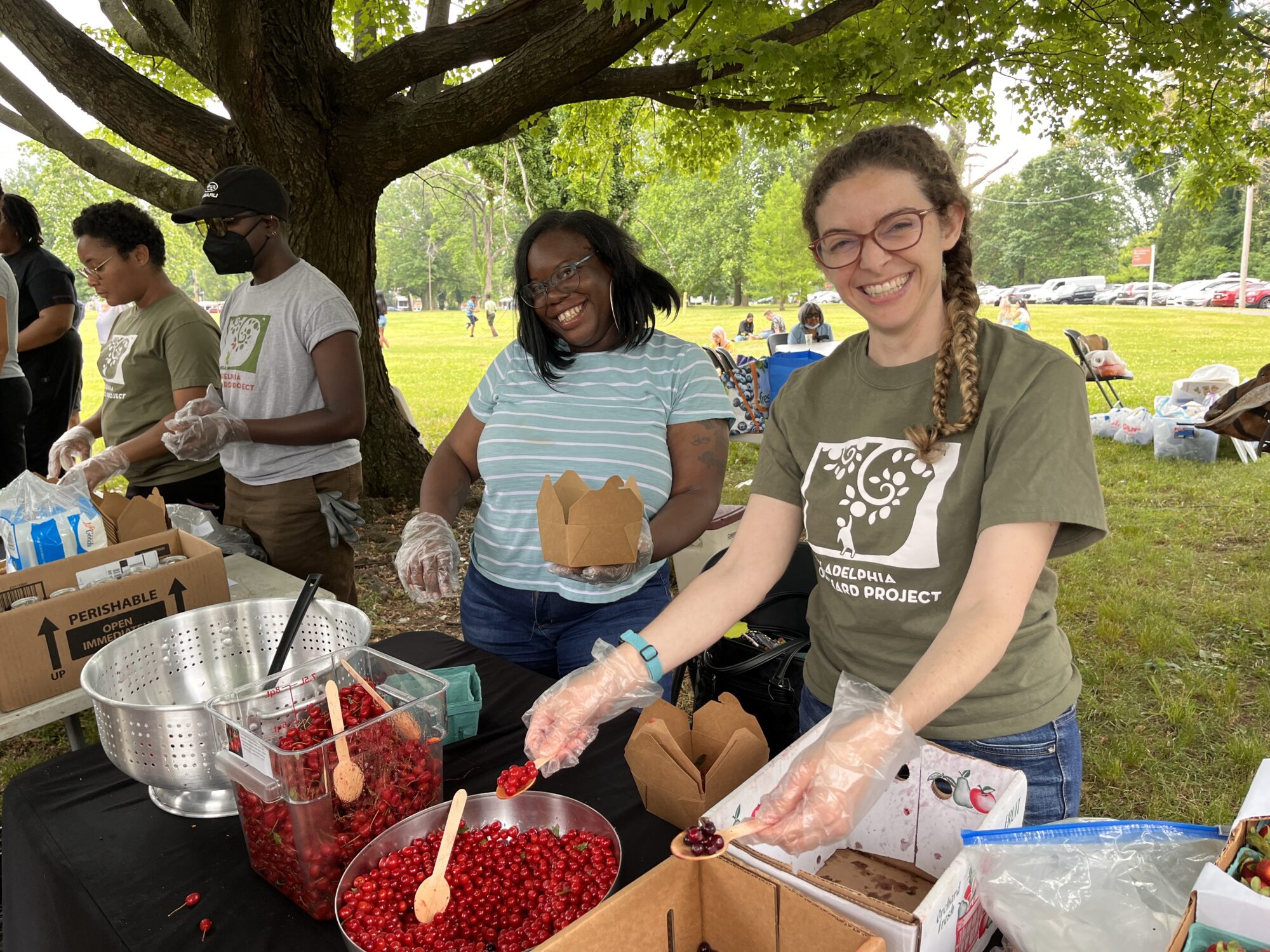
at the POP Learning Orchard) at the 2023 Strawberry Festival
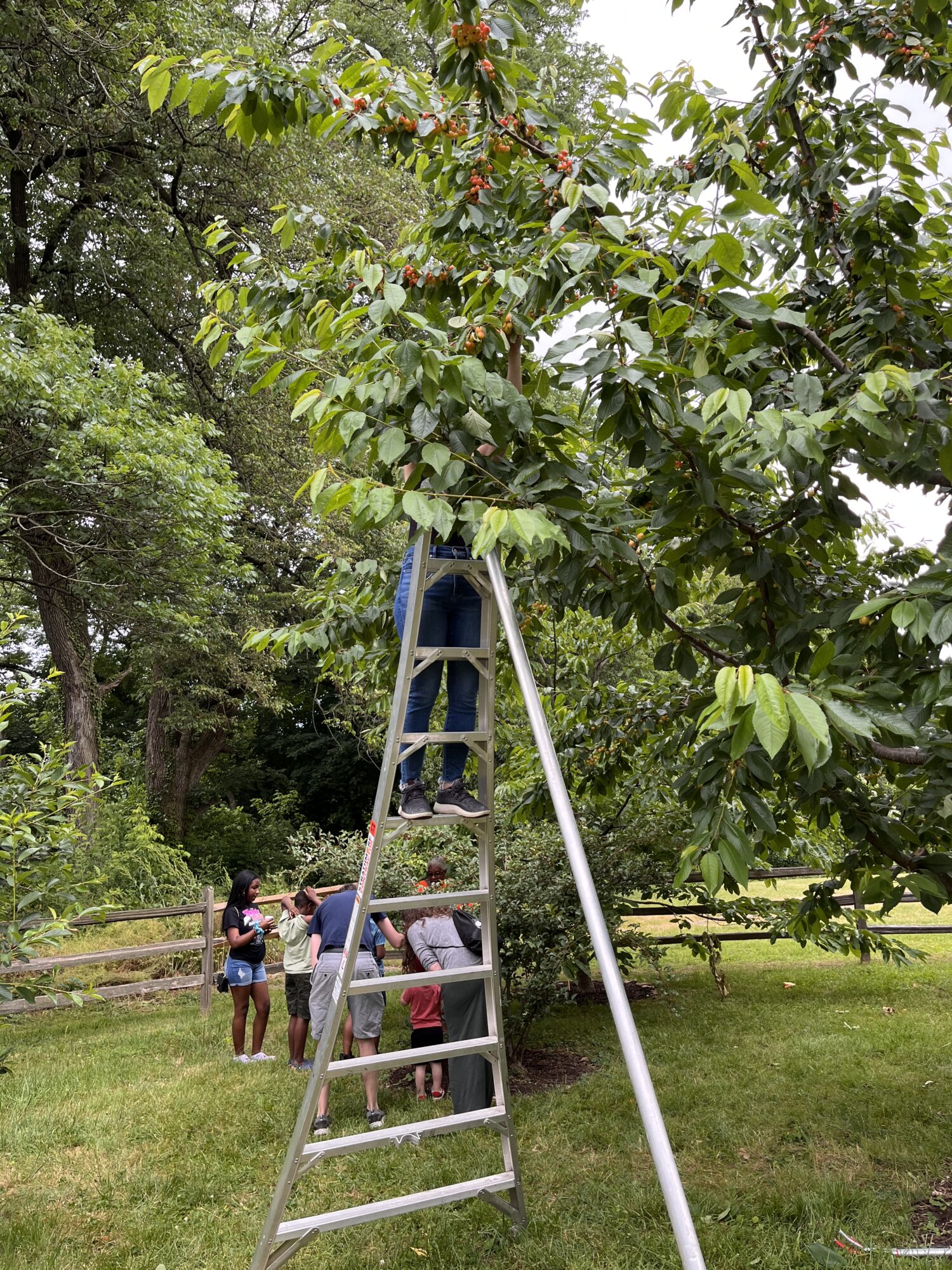
Historic Strawberry Mansion in East Fairmount Park
The effects of climate change continue to grow, most often impacting low-income and BIPOC communities the hardest. These same neighborhoods have fewer trees and green spaces, resulting in dirtier air, increased stormwater run-off, hotter temperatures, and worse physical and mental health outcomes. They also experience lower levels of access to grocery stores that offer fresh and culturally relevant produce, while facing increasing threats from development that further restricts access to green space. Planting trees is one of the best ways to combat the impacts of our ongoing climate catastrophe. By planting orchards that contain food-producing trees and plants, POP’s programs address environmental and equity concerns, and strengthen residents’ ties to the land they walk on every day.
Over the next several years, POP aims to strengthen our existing programs and to grow relationships with ongoing orchard partners and the people they serve, especially those led by or serving BIPOC communities which due to systemic inequities reinforced by decades of governmental policies generally have access to fewer resources. Two specific ways we are approaching this is by enhancing the level of hands-on support and training provided to site partners and staff, and more intentionally engaging with them around volunteer recruitment. Starting this year, in consultation with partners, POP will increase the number of regular staff visits at a number of BIPOC-led orchards, moving from quarterly to monthly support. These sites – 8th & Poplar Farm, Hamilton School, Historic Fairhill, Mill Creek Farm, Norris Square Neighborhood Project, Open Kitchen Sculpture Garden, Strawberry Mansion, and Urban Creators – are also priority locations for recruitment of Lead Orchard Volunteers (or LOV teams) and community educators. These two roles offer stipends to residents, and help them both build and share knowledge around growing and caring for food-producing perennial plants.
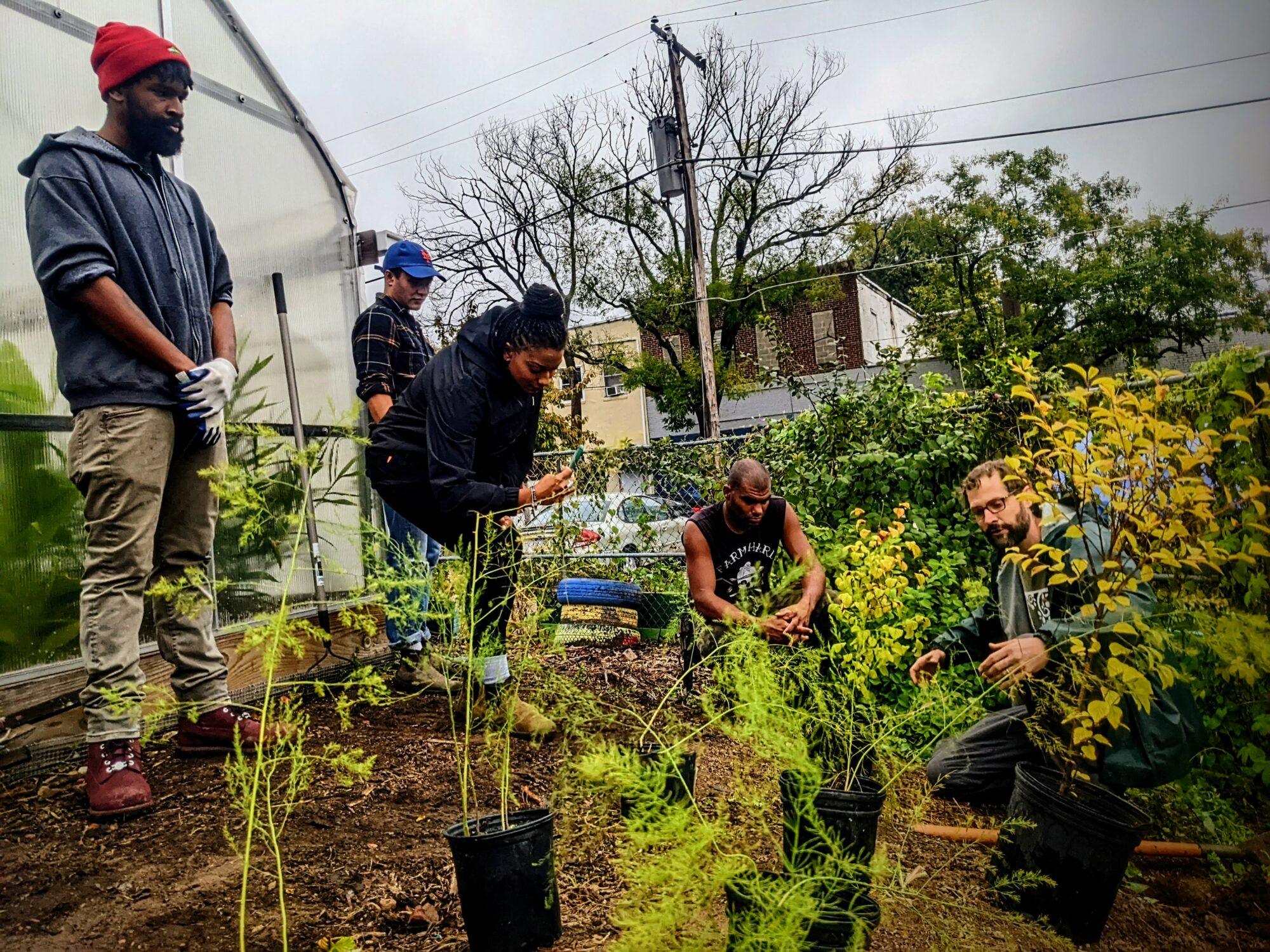
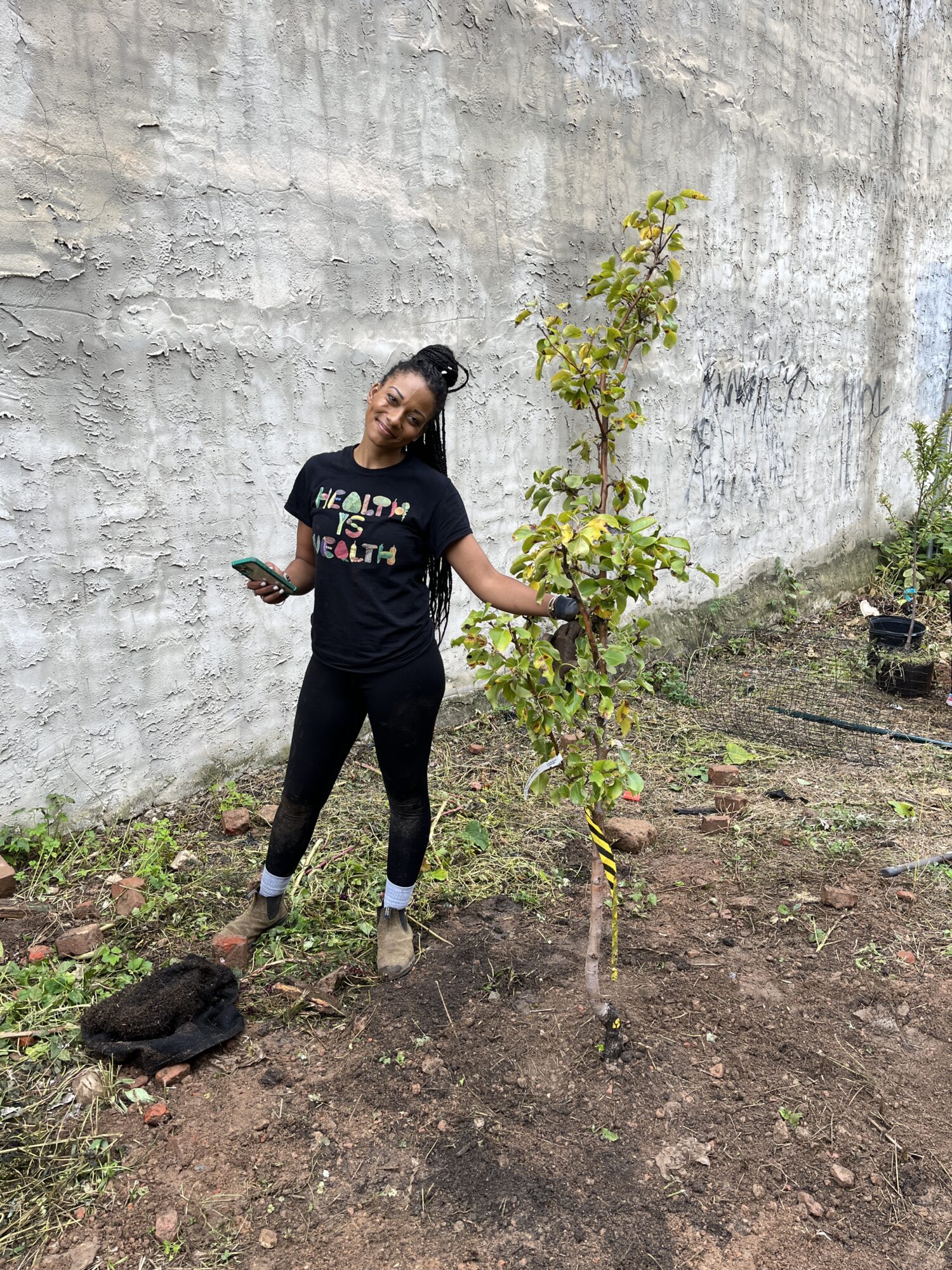
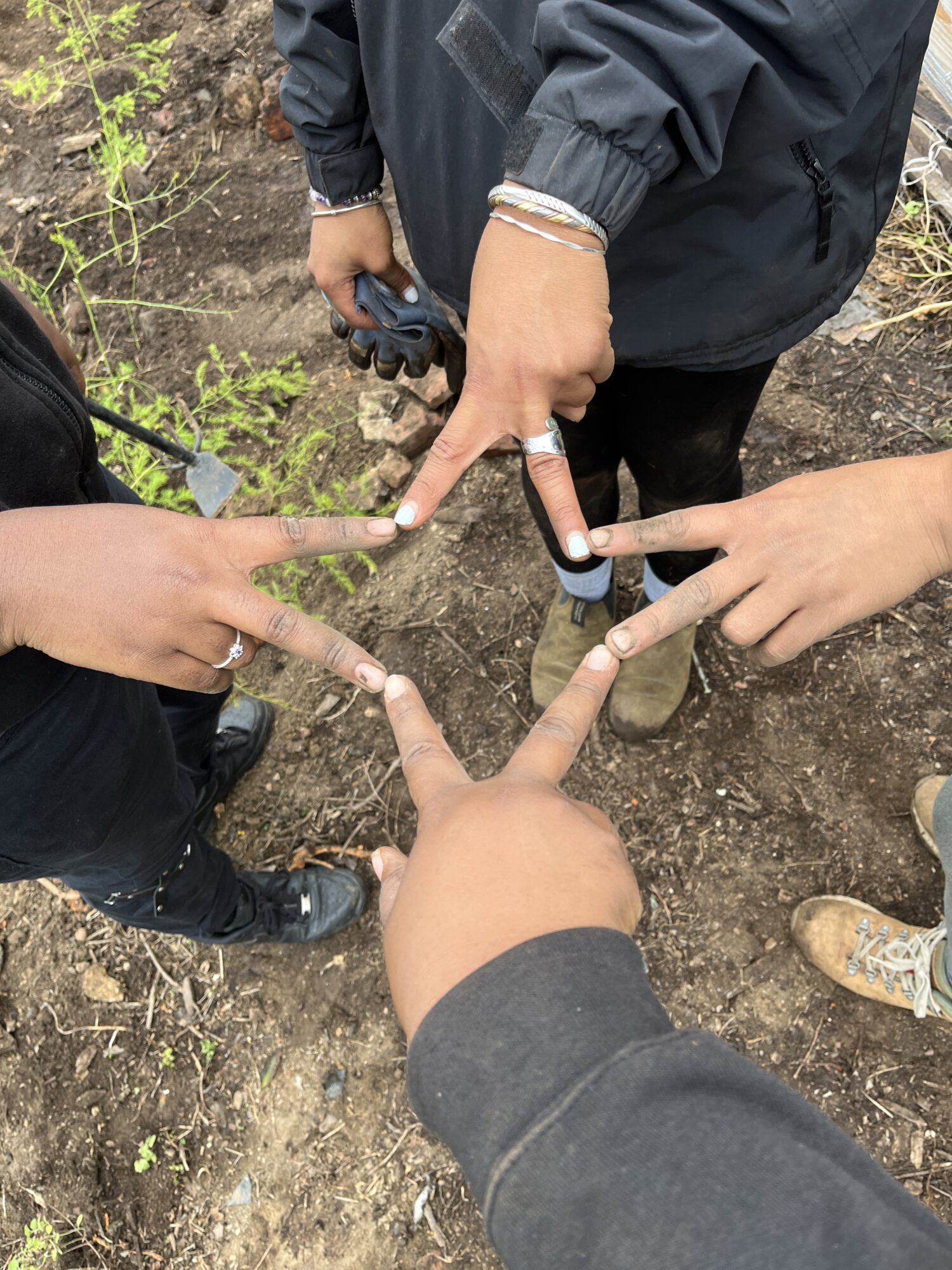
In terms of POP’s staffing and governance, we will improve our recruitment and retention of board and staff that reflect the communities we serve. This includes supporting professional development pursued through a lens of diversity, equity, inclusion, and justice at all levels of the staff, and incorporating racial justice and anti-oppression practices into our daily work. Internally, we have started to cultivate a practice of team skill-shares as a way of supporting a culture of learning, with topics thus far including safe chainsaw operation, finance/budgeting, and how to provide Learning Orchard tours for different audiences. POP is pursuing funding opportunities that will allow us to make improvements to pay and benefits, and support a sustainable staffing structure. We will also continue to expand the involvement of program staff in decision-making around program goals and budgets, as we move towards more power-sharing and transparency. Finally, we will seek and respond to feedback from our partners and volunteers, acknowledging them as those most knowledgeable about needs in their neighborhoods as we seek to improve or expand our programs. In addition to regular surveys provided to these groups, we have also been growing our capacity to solicit feedback through in-person meetings where POP and partner staff can delve more deeply into concerns and planning for the future together.
Regarding marketing, communications, and fundraising, our goals again call for us to deepen relationships with existing partners, so that our volunteers, community educators, program participants, and supporters of all kinds more closely reflect the demographics of the city and the neighborhoods POP serves. We will amplify and recognize existing community voices and knowledge so that people feel shared ownership in POP’s intended outcomes. We will welcome supporters from all walks of life that reflect the racial and economic diversity of Philadelphia, and ensure that funding partners are aligned with POP’s values. One specific way we are advancing these strategic plan goals is through a series of mini-documentaries made in partnership with youth film-makers from Big Picture Alliance. These films (which can be seen on POP’s YouTube channel) involve three different POP partners in sharing their amazing programs and locations, along with their personal stories, with the larger arc weaving through all of this being the story of urban agriculture and environmental justice in Philadelphia.
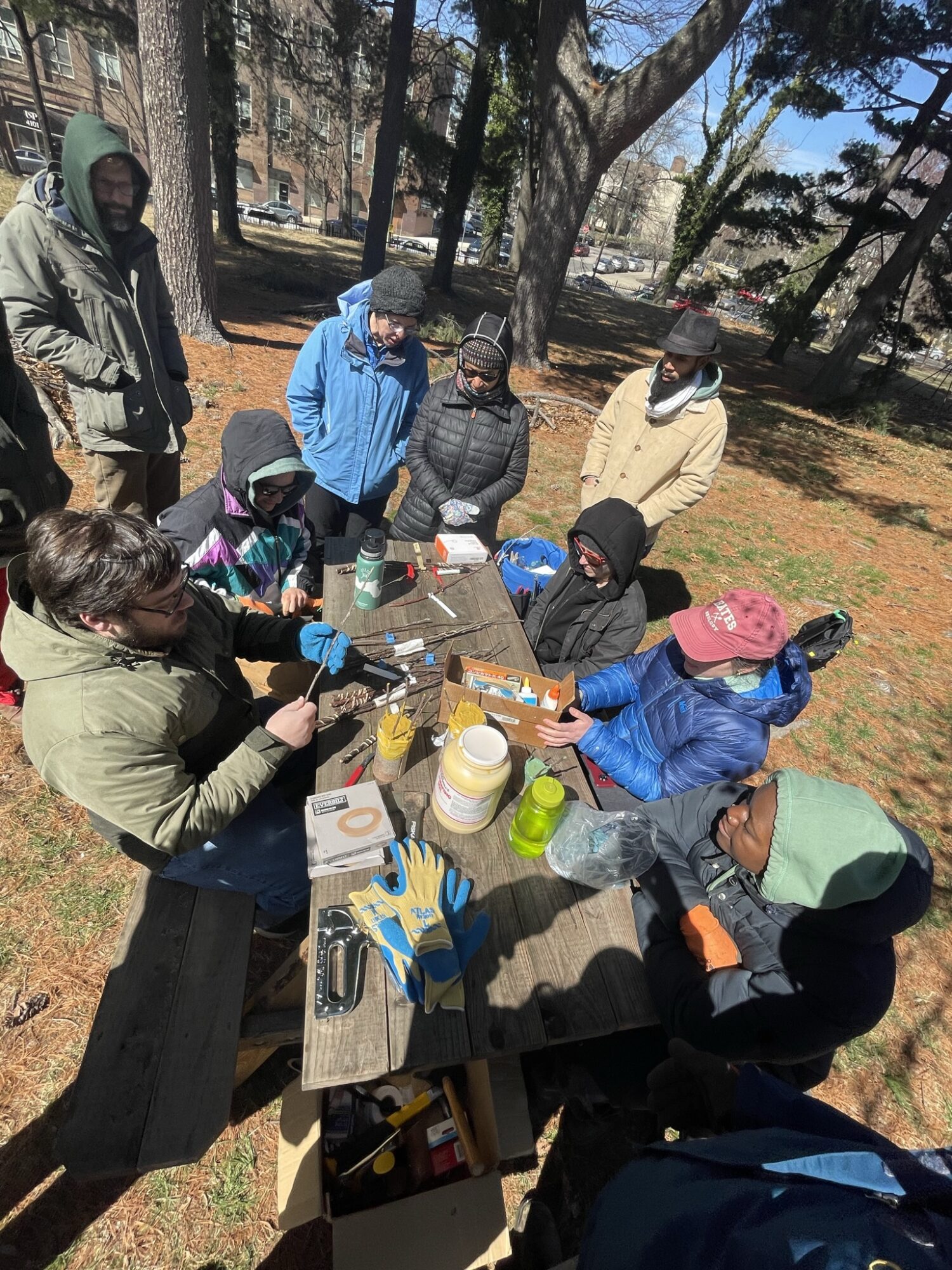
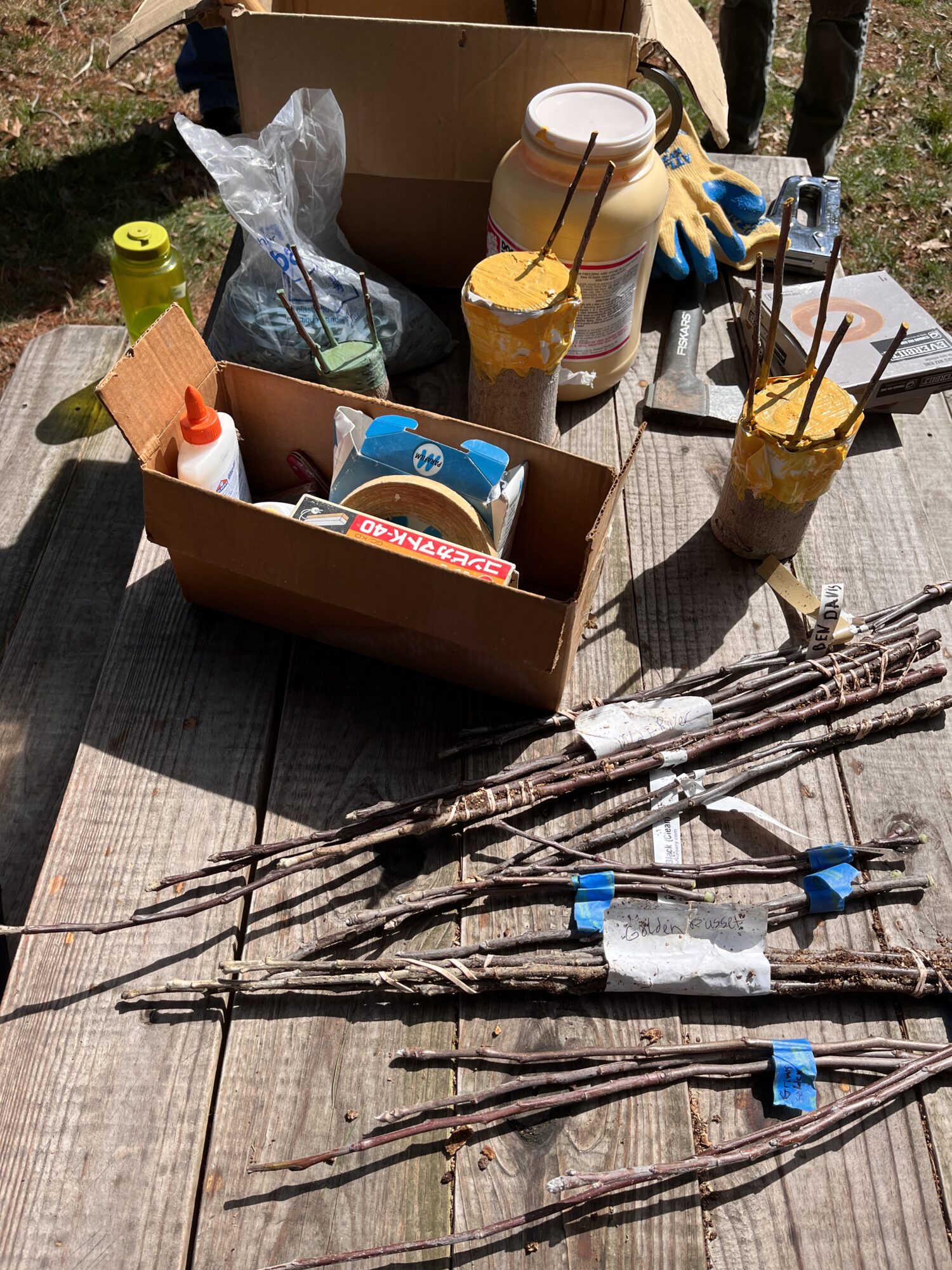
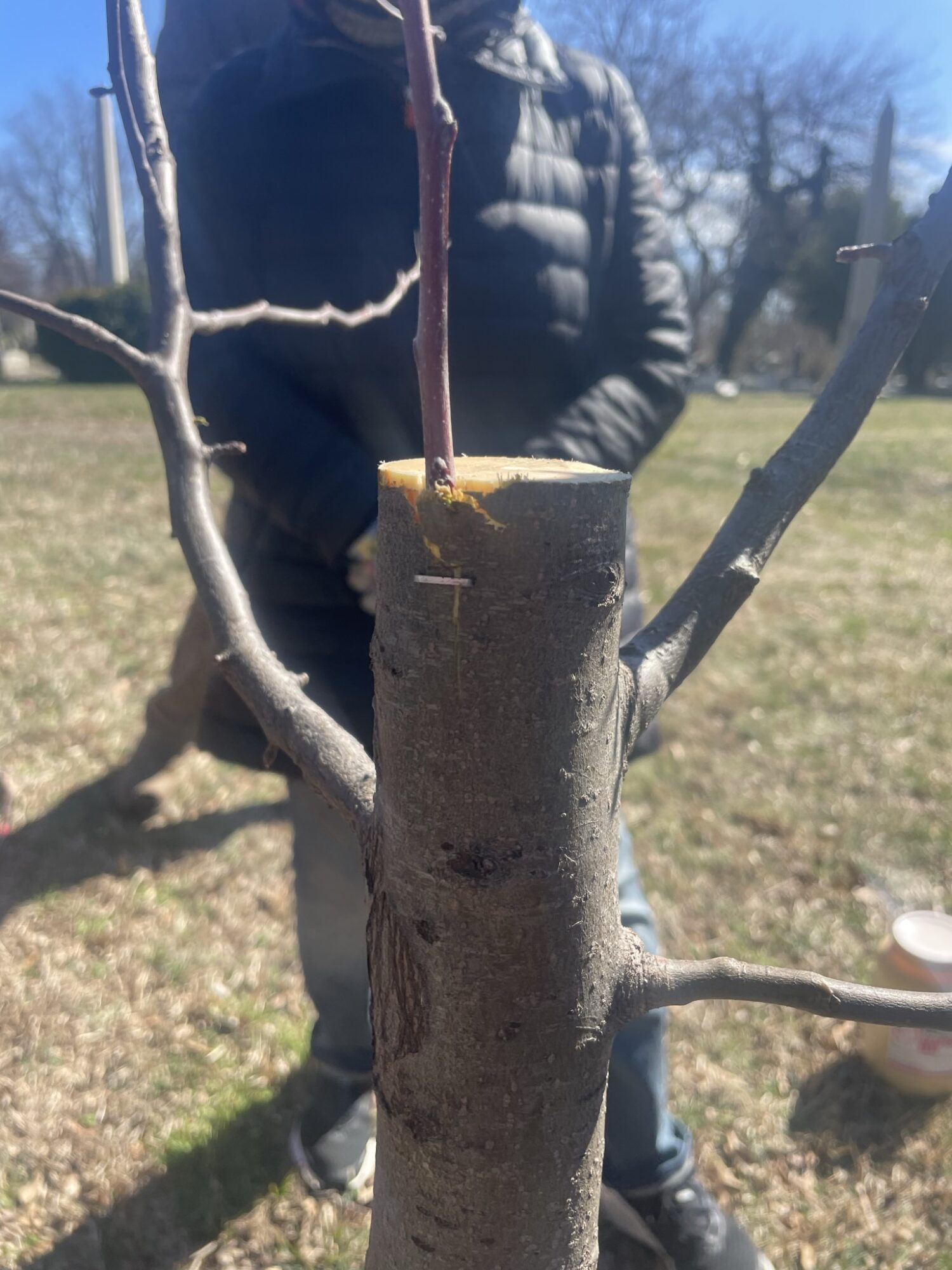
Meet some of POP’s community partners
Everything that POP does is in partnership with community. We value these relationships and want to uplift the work of our orchard partners and volunteers, as we learn and grow together. Some stories and photos from our 2022 partner survey are shared in this blog post. A few more partner highlights are shared below.
Get Fresh Daily, Cedar Park (West Philadelphia): Get Fresh Daily is one of POP’s newest partners and provides wellness education through culturally relevant programs that center the Black community in Philadelphia. In the fall of 2022, measurements were taken for a base map of the garden space at Huey Elementary; these maps, along with other community input, were used to draft an orchard design that included new fruit trees, berry bushes, and companion plants for the orchard planting in the spring of 2023. In June 2023, POP and Get Fresh Daily were awarded funding through the People’s Garden grant program to continue stewarding this and other West Philly community orchards; provide nutrition education and distribute local produce; and develop youth programming.
“We had an amazing season collaborating with Philadelphia Orchard Project! Their monthly donation of freshly harvested fruits, veggies and herbs from their farm were distributed to our community via our Mini Market Pop Ups. We used some of the fruits and vegetables in plant-based cooking demos and invited the community to try them. It was a dynamic, delicious and intentional boost to our Wednesday programming that we all enjoyed!” ~ Jiana Murdic
Historic Fair Hill (HFH), Fairhill (North Philadelphia): A POP partner since 2011, this organization manages four small orchards where neighbors help care for the trees and surrounding gardens. The main site, within the gates of the cemetery, has been expanded over the years and currently contains well-established plantings of figs, peaches, plum, and cherry trees. Berry and pollinator gardens intermingle with annual plants and flowers grown by HFH farmers, youth program participants, and volunteers for their weekly neighborhood farmstand. In early 2023, POP partnered with HFH to host a Spanish-language hands-on pruning workshop for neighborhood residents and partners.
Bartram’s Orchard at Sankofa Farm, Kingsessing (Southwest Philadelphia): Philadelphia’s most diverse community orchard is located at Bartram’s Garden, America’s first botanic garden. Over 140 fruit and nut trees demonstrate the breadth of what can be grown in Philadelphia. The orchard is one part of Sankofa Farm, a larger partnership with Bartram’s Garden, PHS, and Parks & Recreation. Fruit from the orchard supplements other produce distributed via a youth farmer program within the communities of SW Philly. A seasonal harvest festival attracts over 2,500 community members each fall. Sankofa is one of the lead partners, along with POP, Urban Tree Connection, and the Garden at CHOP Karabots, in the Southwest and West Philadelphia Area Grower’s Network (SWWAG), and a common site for workshops, skillshares, and other learning or training opportunities.
This edition of the POP blog prepared by co-executive director Kim Jordan, who can be contacted at kim@phillyorchards.org with any questions.
SUPPORT US! If you found this entry useful, informative, or inspiring, please consider a donation of any size to help POP in planting and supporting community orchards in Philadelphia: phillyorchards.org/donate.